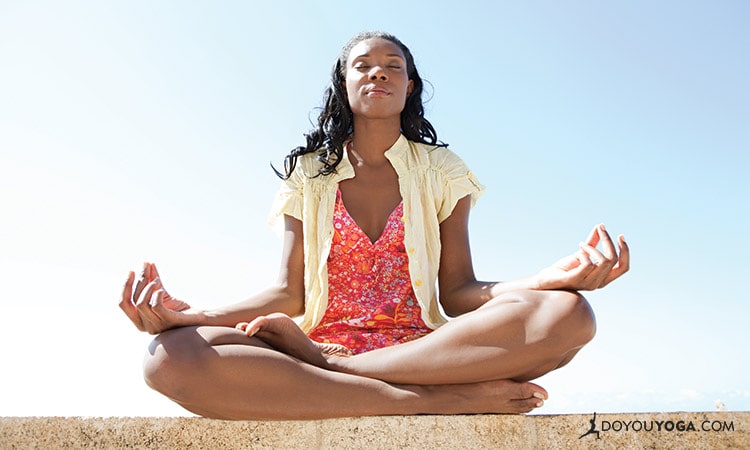You set goals and push yourself to follow through with them. In the beginning, the motivation to change a particular habit pattern may be strong, which provides the fuel to persevere. You may even be able to focus your discipline strong enough to get some momentum to continue down this new path for a while.
However, before you know it, you regress back to your old ways.
Not only do you stop with the positive habit you were trying to form, you condemn yourself for not having the discipline to follow through. This disapproval of self quickly turns into self-punishment. You criticize and chastise yourself for not being good enough to change and incorporate something positive in your life. Self-doubt rises, and you question whether you are good enough or deserve a good life.
Often, you then indulge in negative behaviors as self-punishment that only worsens the situation. You use these behaviors to fill the empty space left from the positive actions you were trying to take.
Why can’t you focus yourself long enough to make a new pattern a habit?
We immediately focus on discipline when we are unable to follow through with our intentions. We wonder why our discipline is so weak, or why it seems like never-ending work to enforce it.
The truth is that you really don’t understand what discipline is. You know that if you can continue with some action that you don’t naturally want to do, it takes force. What is this force and why is it necessary for some things, but not others? This force, we call – discipline.
What is discipline?
What we call discipline is a fight, an internal conflict: your natural inclination is one action, and your intention is another, usually its opposite. Why are you fighting yourself if you know one behavior is better for you than the other? More precisely, why is it that the action you want to take is difficult to do consistently, while the one that you don’t want to do comes easily?
This seems counterintuitive. Shouldn’t it be easier to take the action that you know is better for you, and more difficult to do the action that may even harm you? To better understand this, we need to become aware of what this internal fight is really about.
Discipline is a battle against a tendency. The next question is, what is this tendency and why do you have it?
Simply put, you are resisting. Your conscious and unconscious mind resists your true nature and what is good for you in many ways. When you resist mentally it causes physical resistance. Resistance can manifest in coarse ways, such as injuries, diseases, and inhibited bodily movements and functioning. However, it can also manifest in more subtle ways. These subtle ways are exhibited in your actions and behavior based on the psychology or your resistance.
Looking more closely at discipline through the perspective of resistance, we can ask the question – what is the tendency that you are resisting since discipline is a battle against a tendency?
If the action that you are trying to “discipline” is good for you, and the behavior you are attempting to drop is bad for you, the tendency you are fighting is ignorance.
Discipline is a battle against a tendency of ignorance: not understanding that resisting creates all the suffering in your life.
This resisting is also where you are deficient in self-love. If you love yourself, you cannot harm yourself through bad actions. Not doing what is best for your path in life is harming yourself.
Karma Or Dharma
You can choose to walk down the path of karma or dharma. Karma is action, or specifically—cause and effect of action. If you are resisting your path, you are creating karma, the results of which will bring you suffering. If you walk down the path of dharma, your true path, you will create the benefits of a fulfilling and harmonious life.
Do you need discipline for things you enjoy doing? Why don’t you enjoy doing things that are good for you? What are you fighting? You are fighting ignorance. But you haven’t recognized the experience of its effects. If you have, why do you need discipline to make your life better? Shouldn’t you do things that are good for you with pleasure and joy?
You are fighting the ignorance of not understanding on an experiential level the direct relationship between your actions and its benefits, and/or, you don’t understand when you are experiencing the direct consequences of your actions. You don’t know cause and effect on an experiential depth.
For example, if you were walking down a sidewalk and every time you stepped off, you were electrically shocked right then, would you need discipline to stay on the sidewalk?
Discipline is only necessary in the initial stages of your journey. Once you experience true understanding of your path you will realize there is no other way.
It’s okay to use discipline if you don’t understand when you are experiencing the effects of your actions, or if there is a deficiency of self-love. However, this should be temporary. There should be a point in your life where your self-love is so great, and your understanding of your path, and the cause and effect of walking down the path or stepping off of it, takes the place of discipline.
Doing things out of self-love and understanding is an easier and more harmonious approach to your life. Experiencing understanding of your path (not just knowing on an intellectual level) creates an appreciation of the Creator flowing through you.
This is Love. Your capacity to recognize this is self-love. You will then be drawn down this path through expressing this Love. This is harmony.


